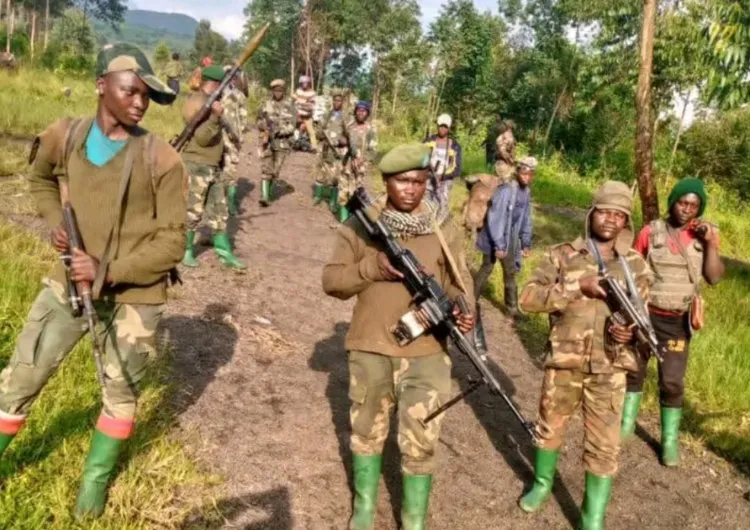A recent announcement of an agreement in principle between the Congolese government and M23 rebels, brokered under Qatari mediation, has sparked a wave of criticism and rejection from various stakeholders within the Democratic Republic of Congo (DRC), including local militias, civil society groups, and pro-democracy activists.
While the deal was intended to mark a step toward peace, opposition voices say the move undermines the sacrifices made by local self-defense groups and risks legitimizing an armed group widely considered a terrorist organization by the Congolese authorities.
Wazalendo: “This Deal Doesn’t Represent Us”
The Wazalendo — a coalition of self-defense groups aligned with the Congolese national army (FARDC) — have firmly rejected the Doha agreement. These militias, largely composed of youth from Lubero, Beni, Butembo, and surrounding areas, say the peace process excludes key actors on the ground.
“Our army is weakened by foreign armed groups. We are ready to continue the war,” said Assa Mahamba, Coordinator of Wazalendo – Front Grand Nord. “This dialogue, including the agreement in principle, does not commit us. We cannot talk to Doha without consulting the Wazalendo, who have been fighting for years. The DRC belongs to the Congolese.”
Based roughly 20 kilometers southeast of Butembo, the Wazalendo forces claim to be holding the front line against further M23/AFC rebel advances into urban areas.
Lucha Movement: A History of Failed Dialogues
The citizen movement Lucha (Lutte pour le Changement) also denounced the ongoing process, describing it as a recycled failure. According to the group, peace accords with rebel factions have historically resulted in amnesties that embolden armed groups and erode state authority.
“From AFDL to M23, RCD, and CNDP, these dialogues have often led to agreements that enshrine impunity for serious crimes,” Lucha said in a statement. “They fuel a cycle of violence, weaken the state, and legitimize the seizure of power by arms.”
Jean Mangapi, a Lucha activist in Beni, added: “Even if M23 were to withdraw today, the root problems would remain. This is a time bomb. True peace requires a reformed national army and a system of fair justice.”
The group has announced plans for peaceful citizen actions to oppose any mass amnesty or integration of rebels into the military or state institutions. Instead, they are calling for an inclusive, nationwide dialogue to tackle the fundamental drivers of conflict.
UDPS: Dialogue as a Path to Peace
In contrast, the ruling Union for Democracy and Social Progress (UDPS) has defended the Qatar-facilitated negotiations, framing them as a constructive step toward ending violence in the east.
“This dialogue offers a chance for lasting peace,” a UDPS spokesperson said, expressing hope that it will lead to the full withdrawal of foreign — particularly Rwandan — forces from Congolese territory.
Despite the signing of the preliminary agreement, fighting continues in multiple hotspots across North and South Kivu. Civil society reports indicate that both the Congolese army and rebel forces have violated the ceasefire, with an increase in armed clashes and the movement of weapons and reinforcements to frontlines.
As regional and international mediators watch closely, the viability of the Doha agreement remains uncertain amid widespread mistrust, continued violence, and growing internal opposition.



